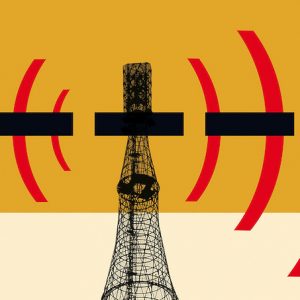It was Eric Schmidt who said out loud what virtually every technology worker must be thinking: that he hopes, out of this virus, comes “a little bit” of gratitude at least for the tools Silicon Valley has given us.
And grateful we are, we are. For where would we be if not for our screens and Wi-Fi connections, our Zooms and our Skypes and our social media accounts? It’s almost as if technologists designed this moment, so perfectly does it confirm tech’s ascendancy, its absolute indispensability. And yet, isn’t it possible that even as we enter a more virtual world, we become better able to put our phones down, to more easily exit the Instagram trance, to make a decision to reclaim our gaze in the off hours? I would like to make a case for the return of attention. Old fashioned attention, the kind involving deliberate, conscious choice.
Thrown into the technological deep end as we are, screen time reaching new highs, is a little bit like entering the next phase of a relationship. You know the one. It comes after infatuation, after idealized romance, when you take a trip and, alone together, you suddenly recognize all the ways in which this thing might not be love.
The purposeful flexing of attention does something for my mood. It makes me an agent again in my own life, a witness.Because here’s what we know: we have our phones, but they don’t dispel the boredom and the grief and the loneliness. What’s lost, in the viral spring of 2020, is the sensory: the neighbor’s bounding dog we don’t dare pet. The dear friend we can’t embrace when we come upon him on the street. The smile we cannot see, behind its spooky mask. These all register in the body as micro tragedies. And they add up.
For me, one of the only consolations of this moment (besides dessert), one of the only ways I avoid going mad, has been walking the neighborhood, pushing my baby in his stroller, actively tracking the surreal pandemic details: the tables still perfectly set at the Greek restaurant. The festive jazz that continues to play over the loudspeakers at the upscale market, even as the jittery shoppers rush through, dodging death itself with their masks and gloves. It’s a game I play, most afternoons, when the solitude becomes unbearable: to collect the most telling details of this moment we are living through, the ones I will hardly believe when I tell them to my son years from now. It’s a game of attention. It fulfills a need my phone can’t touch: to engage with the physical world around me, even, especially, as that world turns upside down.
The purposeful flexing of attention does something for my mood. It makes me an agent again in my own life, a witness, at a moment in time when so much has been taken away, when almost everything is beyond our control.
Attention doesn’t have to be perfect. In fact, it never is, and it never has been. But it’s yours, to pay as you choose. And therein lies its power—and its preciousness.
__________________________________________________
WHAT COMES NEXT: LIFE BEYOND PANDEMIC
Noam Chomsky on the history of the left and its response to crisis
Bill McKibben on what the coronavirus pandemic means for the climate crisis
Karen Washington on a renewed movement to grow food in cities
Ari Berman on how to treat voting as a public health issue
Ai-jen Poo on creating policies that protect care workers
Madeline ffitch on what anarchism shows us about caring for each other
Elizabeth Catte on mutual aid as a form of resistance to power
Julian Noisecat on how progressive messaging can adapt to the pandemic
Andrew Keen on employing media and technology to protect truth
__________________________________________________



